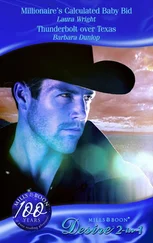1 ...8 9 10 12 13 14 ...20 But his men were not the only casualties. His archers were causing damage, too.
She had seen three of her men struck by their arrows and missiles on the wall adjacent to the south tower. He had hundreds of men in this battle, while she had less than fifty. She could not afford to lose even three of her archers.
And he commanded his army by riding back and forth amongst his men. He was never alone, and he rarely rode out of the column of his knights and foot soldiers. Still, she had espied him the moment she had come to stand at the tower window. He was an unmistakable figure, powerful and commanding, even from a distance.
She had never hated and feared anyone more.
And she refused to admire his courage as her archers were continually firing upon him.
“How can ye watch?” Peg asked.
Margaret did not face her. “I do not have a choice.”
“There is always a choice,” Peg said bitterly.
Margaret turned. “You have been very clear, Peg, and while I have valued your opinions in the past, they are not helpful now.”
“We will all die here,” Peg said, bursting into tears.
Margaret grimaced, finally leaving the window. “We will not die,” she said, taking her into her arms. “Not if my uncle Argyll comes to our rescue.”
Peg sniffed. “You are as brave as your mother, and now, the whole world will know it.”
Margaret knew she wasn’t brave—she was sick with fear, but she would never tell her maid that.
She began to worry that the tides of battle were changing. The cadence of the striking battering ram quickened—more men had been added to its service. Fewer men were being struck by her archers—she did not see wounded soldiers dropping to the ground as she had at the start of the battle, and more were climbing up. Fewer arrows flew from her walls at the Wolf’s army while the hail of arrows and missiles from below had become a constant barrage.
She saw one of her archers fall from her walls, very close by the window where she stood, an arrow protruding from his chest. She could not stand it. She ran from the tower, and as she did she heard a great crash from outside, from the barbican, and the huge sound of splintering wood.
Margaret rushed onto the ramparts and paused, trying to adjust to the chaos around her. MacDonald soldiers were literally atop the crenellations now. Dozens of women stood throwing oil at them. Arrows and stones were a constant hail, raining down upon them. Explosives intermittently landed, detonating.
“They have breached the barbican!” someone shouted.
A woman her own age was heaving a pot of burning oil at a soldier who was now standing on her ramparts. As she threw the cauldron at him, he thrust out his arm, knocking the pot aside. Hot oil spilled, but he only grunted. Then he seized the woman by the hair.
A dagger flashed in his hand.
Margaret did not think twice. From behind, she stabbed him in the back.
He roared, turning, enraged. Before she could strike again—now to defend herself—Sir Neil struck him through with his sword from behind. His eyes widened in shock, and then he fell, clutching his bleeding midsection.
“You cannot be here,” Sir Neil said to her.
She ignored him, seizing the pot the woman had thrown and rushing to the fire pit with it. For an instant she paused, uncertain of how to put the hot oil into her pot.
The young blonde woman, whose life she had saved, now held a ladle and she scooped the boiling oil into her cauldron. Their eyes met.
Margaret smiled grimly, turned and found herself flinging oil onto another soldier climbing across her walls. From the corner of her eye, she saw Sir Neil wielding his sword against an enemy soldier, the two men exchanging frightening blows.
Her oil struck the man on his face, neck and shoulders. He screamed, falling off her walls.
But another man was behind her. Margaret whirled, throwing the contents at the next man. As he fell, she thought, This is impossible. We will never keep this up.
But for the next few minutes, or perhaps the next few hours, that is exactly what she and the blonde woman did. Even as the invaders fell from the ladders and the walls, others succeeded in landing upon the ramparts, where Sir Neil, Malcolm and his men engaged them with their swords, maces and daggers.
“Lady,” she heard Sir Neil call.
Margaret had just thrown oil over the side of the ramparts, at a very young boy, whom she had missed. He now hung to his ladder, grinning at her, a dagger clenched in his teeth. Arrows rained past him, over her.
She had become accustomed to the barrage and she did not flinch or even duck. She glanced at Sir Neil, who was bleeding from his shoulder. “They are about to scale the walls below the first tower, and once they are within, they will lower the drawbridge,” he panted.
For an instant, she simply stared at him.
“It is over, we have lost—you must flee.”
Their gazes were locked. Then Sir Neil took his sword, raising it threateningly. The boy she had been fighting ducked, and then raced back down his ladder.
Margaret tried to comprehend him. Dying men littered the floor of the ramparts, alongside the already dead. Some were MacDonald soldiers, others were her own archers and men. Two women, one elderly, also lay as corpses.
Margaret had never known such despair—or such desperation. “Is there any chance we could hold them off below?”
“We have lost most of our archers. No.”
She inhaled, hard.
“It is a matter of hours, or even less, Lady Margaret, and they will have breached our walls entirely. We do not have enough men to fight them now. Your horse is ready. I will take you to safety.”
Sir Neil was in earnest now—he meant to rush her away. They had lost.
She knew she must not fall into the Wolf’s hands. But she stared across her ramparts. The women continued to boil oil and throw it at the enemy, but they were so clearly exhausted. The blonde stared at her now, her mouth pursed. Had she heard? Did she know that Sir Neil wished for her to flee? A few of her soldiers were fighting the enemy with daggers, not far from her. And she had only four archers left, but they were not even firing their arrows now. Instead, they were staring at her, too, as was Malcolm.
How could she leave them now? When the Wolf intended to execute them all?
“I am not abandoning my people,” she heard herself say.
Sir Neil choked.
She had no will to explain. But the men and women who had survived were her responsibility.
She must beg for the Wolf’s mercy, she thought.
“It is time to surrender,” she said tersely.
“Lady Margaret,” said Sir Neil, “he will not accept your surrender now, when victory is but hours away!”
God, was he right? She knew nothing of warfare! “If we try to surrender now, maybe he will show mercy later.”
Sir Neil was aghast. “You will be his captive, Lady Margaret, and you’re too valuable to be taken hostage. We must go! I swore to keep you safe!”
He was right—she would be taken prisoner. In that moment, Margaret knew she would rather be a hostage for the rest of her life than flee her people, leaving them to be slain by the Wolf of Lochaber. She must fight him tooth and nail, she thought, until he showed them mercy.
One battle had ended, now, another had begun.
“Raise the white flag,” she said.
CHAPTER THREE
MARGARET STARED UP at the gray sky, watching the white flag of surrender as it was hoisted high above the south tower. It slowly unfurled.
Tears blurred her vision as the hail of arrows lessened, as the barrage of missiles and stones ceased. The clang of swords was silenced, as were the whistling screams from the projectiles, the whirring from the arrows, the shouts of men being burned and falling to their deaths.
Читать дальше












